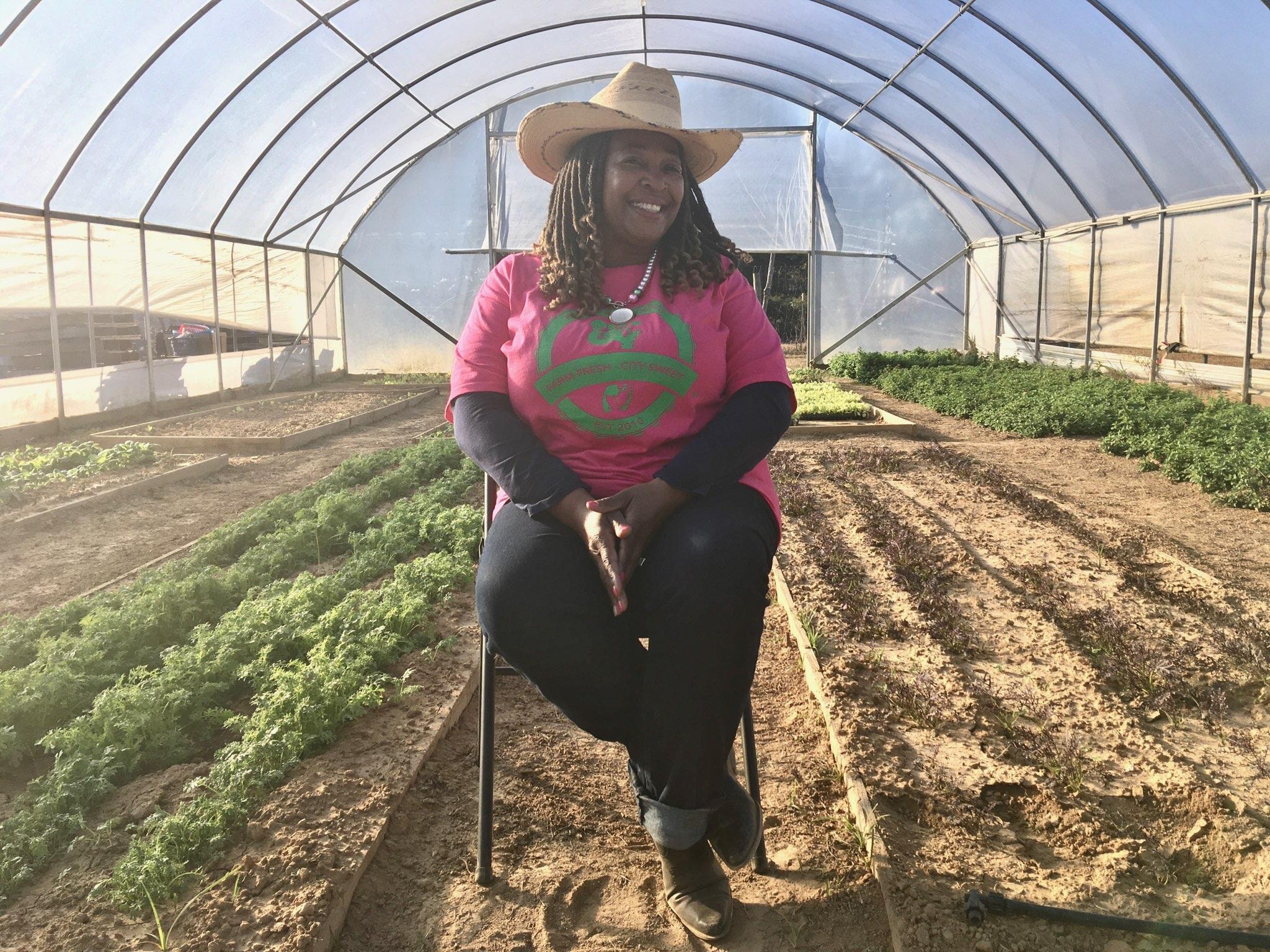 [above] Dr. Cindy Ayers, founder of Foot Print Farms, Jackson, Mississippi
[above] Dr. Cindy Ayers, founder of Foot Print Farms, Jackson, Mississippi
I would have made a post about Footprint Farms even if there were no COVID-19 crisis,
but all the more inspirational now…..

Around 70% of school children in Mississippi rely upon free or subsidized lunches.
With the arrival of the Covid-19 pandemic, one local farm has stepped in to ensure they still get nutritious food in their diet.

Foot Print Farms is 68 acres of farmland in Jackson, Mississippi.
“When you come onto the farm you see rolling hills, fields of crops, fresh produce, the poly tunnels we use for growing some crops year round”.
…says Dr. Cindy Ayers, founder of Foot Print Farms

Cindy says, “..parts of the city are considered a food desert”.
“That means people struggle to get fresh fruit and vegetables because they live more than one mile from the nearest grocery store”.

“Most of Mississippi is a food desert in this way. So the current situation is particularly worrisome”.

When you go to the grocery store and you see shelves empty, it is scary. Some people are afraid to go in at all.
I see some lines a mile long, with people sitting and waiting to get inside. Getting good, fresh, local food is hard.

We are considered a small farm, but we are the largest urban farm in Mississippi.
It’s one thing growing the best fruit and vegetables, but if you can’t sell it in one or two days you lose it. Yet, there are people out there who really need it.


A lot of what we normally do relies on people getting close together. That have had to stop. We can’t have school groups on the farm.
The farmers’ markets are still open, but people might be scared to go to them. So we’ve had to think of a way to allow customers to come to us in a safe way.




My first reaction was “Oh my gosh” when I heard all the data from other countries about the virus, Cindy Ayers says…
…but for me, and other people in rural areas like Mississippi, there is always a crisis in terms of access to food. The pandemic is only making it worse.



We have been partnering with school districts. As the schools are shut,
….a lot of children are not getting the meals they would normally get under the national school lunch programme.
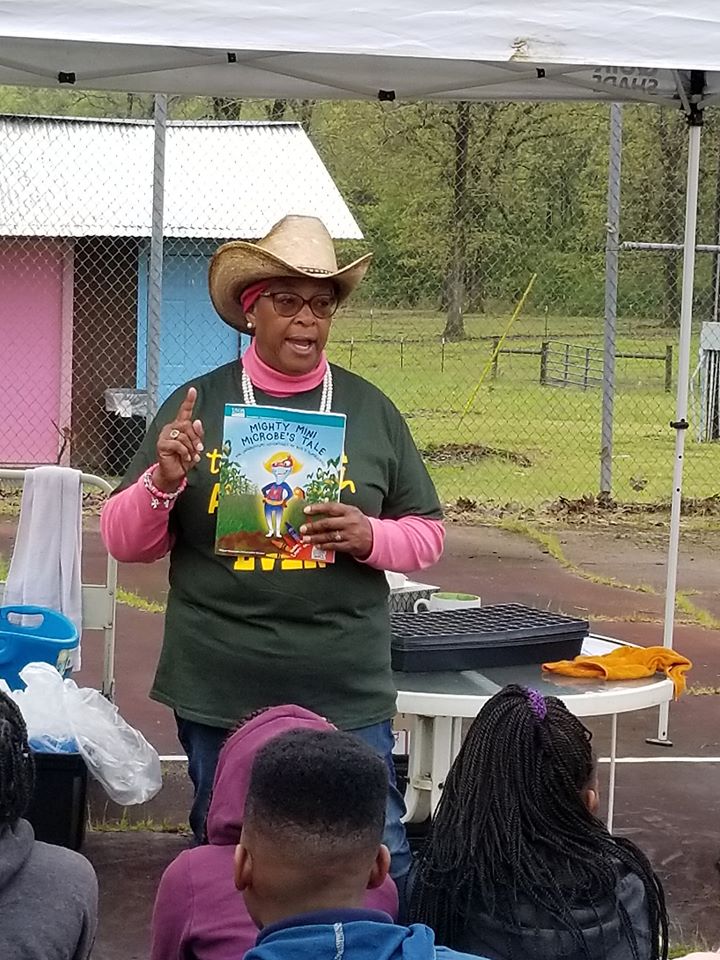

A lot of families rely on them as a source of good, nutritious food.
(Mississippi has the highest proportion of children dependent on free lunches in the US and has the highest food hardship rate in the country.)



Says Cindy Ayers, “The schoolchildren get lunches and hot meals, which we can prepare on site here,
…along with a bag with 7lbs (3.2kg) of fresh veggies from us that will feed four people for two days”.


This means their families are also getting food.
Many of them didn’t have enough even before this started. We do what we can to make a difference.

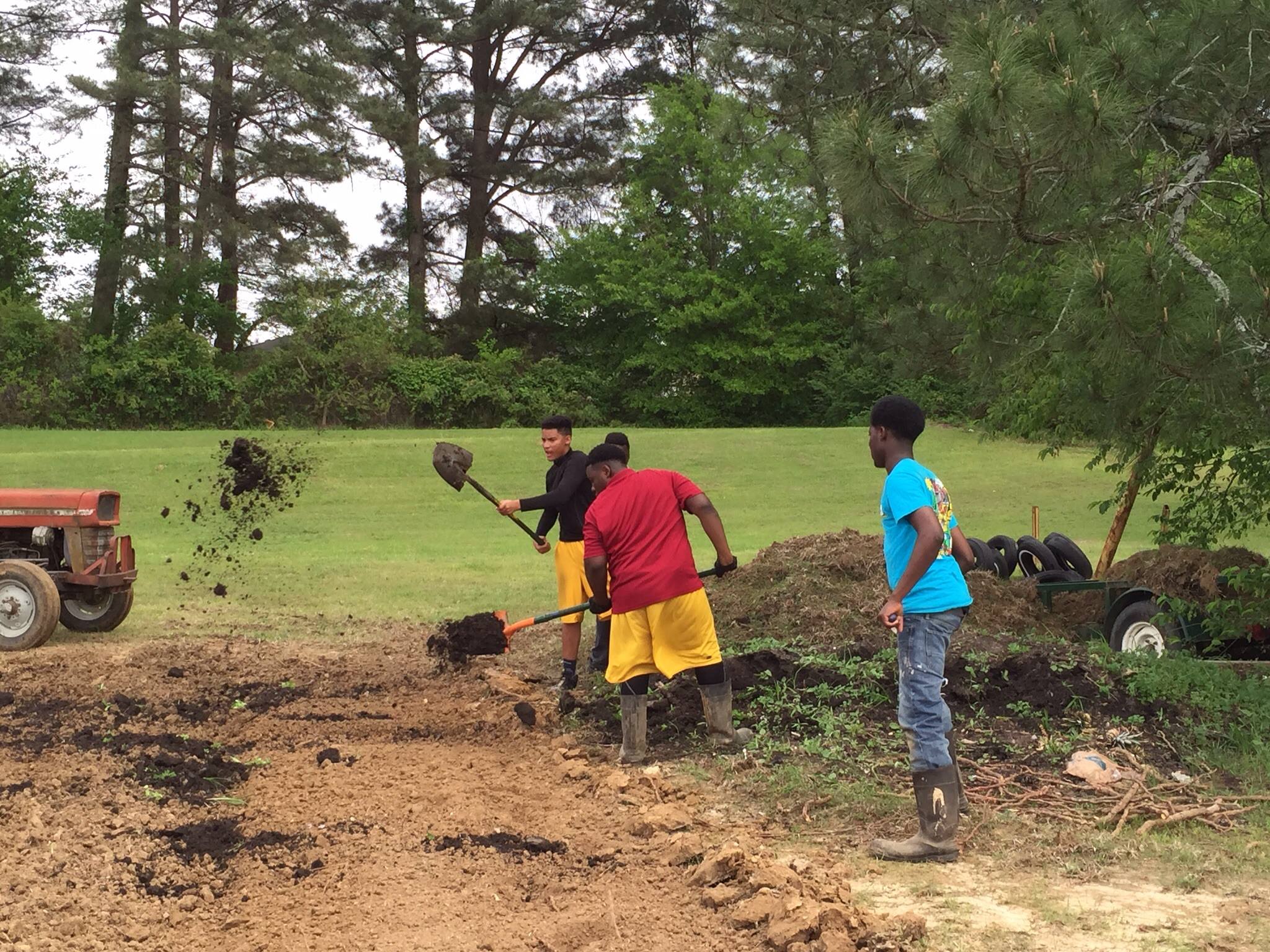
What has been essential is bringing on three people to keep up these partnerships with local schools, and for people who can’t get to the grocery stores.
For us, the partnerships with churches and community organizations and government entities have been so important.

We were already doing pop-up markets in food desert areas.
We have a cute little pink bus that we use to drop off the school lunches and take fresh food to people that need it…


….and people say “It’s the veggie lady that’s coming” when they see it.

We have also been doing our farmers’ market twice a week since Covid-19,
….because of the demand from customers who still want to buy fresh food but cannot find it elsewhere.


But since Covid-19 we opened the farm up as a drive-up pick-up market. We put in extra precautions – never letting customers get too close to the food, just having customers drive through the farm.
Now people can pre-order with us by phone, drive up, and we put your food in your truck.

A small farmer like me has to be innovative from Jump Street, we have to be sparing and do it well in order to be able to continue.
For me, and other people in rural areas like Mississippi, there is always a crisis in terms of access to food.

We started to do aeroponics (growing plants without soil using moisture in the air), which is unheard of on a small farm because of the economics.
But we do it and publish the information to help out others. I want to help all farmers. Even if you’re just growing something on your patio.

I’m a native Mississippian, this is home. For a long time Jackson has been a food desert.
[below] That shot was taken a few years ago, before the “social distancing” era of 2020, but too cool of a shot not to post!!!
We have been pushing the local movement for over 10 years, now. And the area around us is now no longer a food desert.

Learn more about Foot Print Farms on the Foot Print Farms Facebook Page
…or on the Foot Print Farms Website

text from this article taken from an article I ran across on BBC.com

~stay healthy~
You might also like…..
Ron Finley: The “Gangster Gardner”
He plants food and gardens in Vacant lots in South Central L.A.
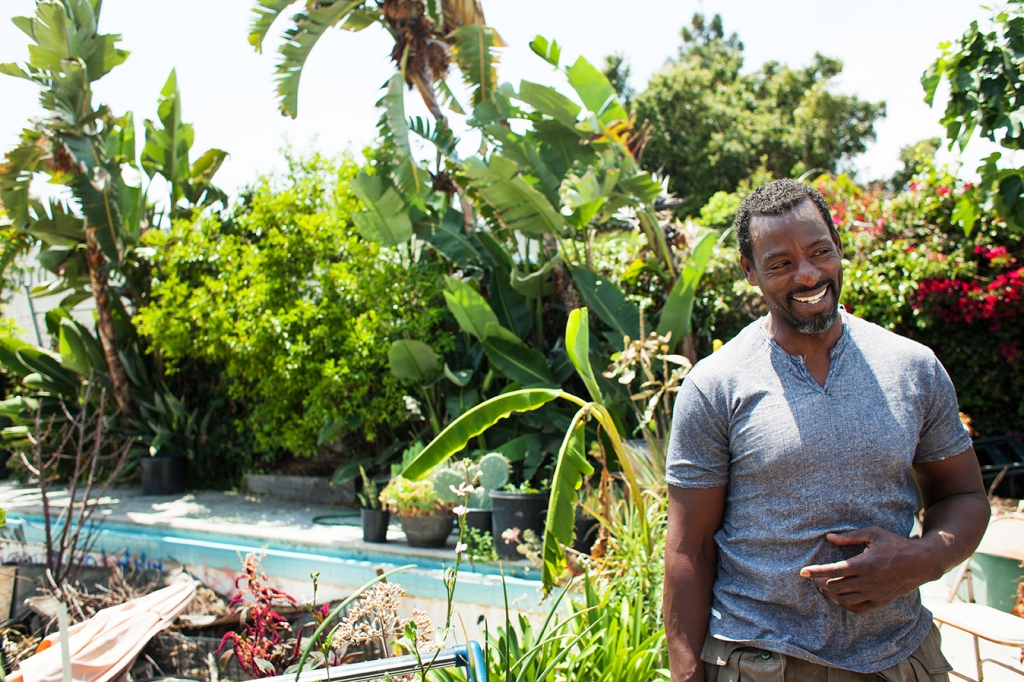
Healthy Eat Eaters Equals Strong Minds
(Urban Kinds “Reap What They Sow” In Their Urban Garden)
(click here or photo below)
NFL Player walks away from $37 million dollar contract to start a farm to feed the hungry
(click here or photo below)
check out all my articles in
“Sustainable Gardening, Eating, Living…..”
(…..and all that jaz”) 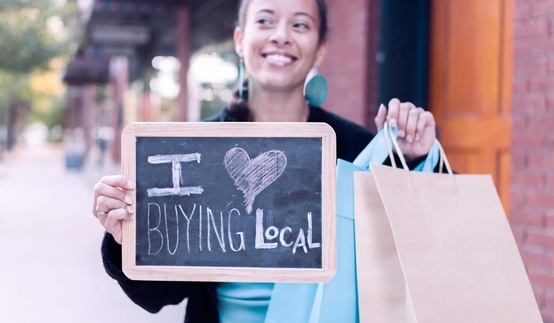


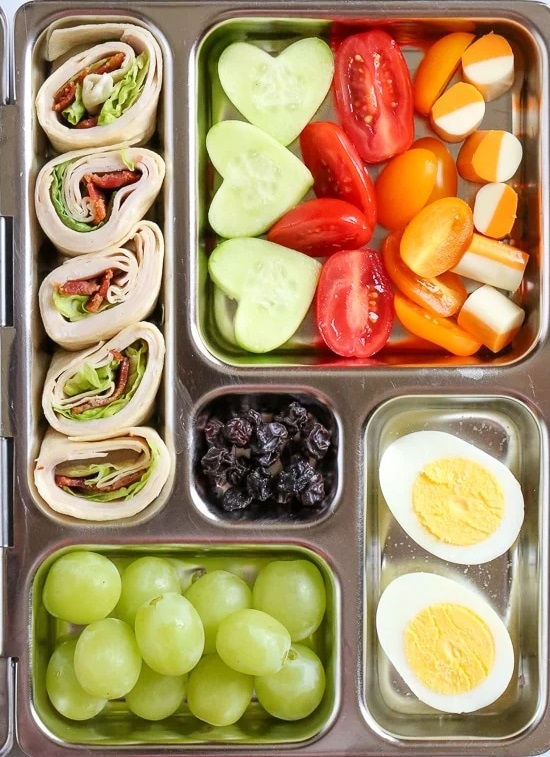
























































































One Response
I will like to know more about the foot print farm